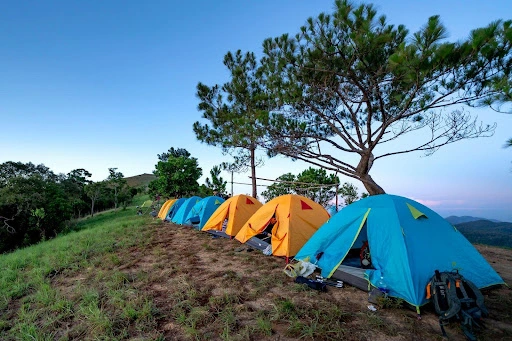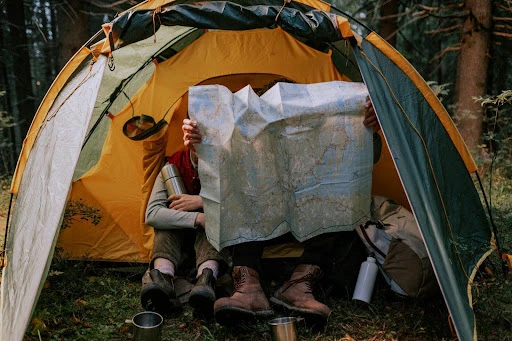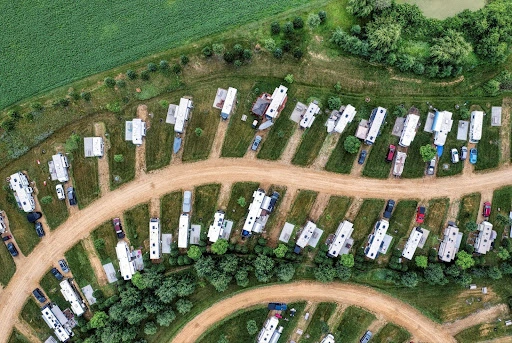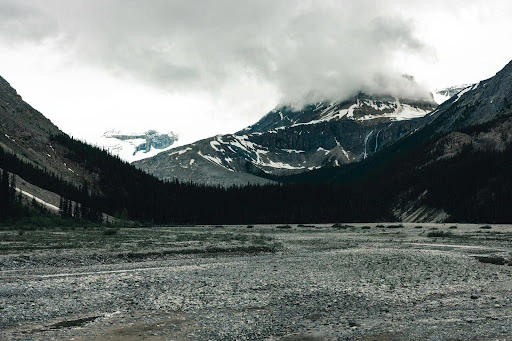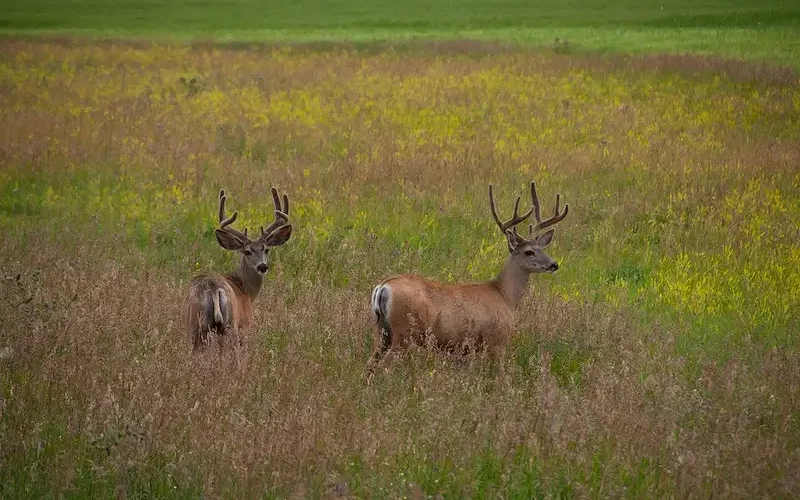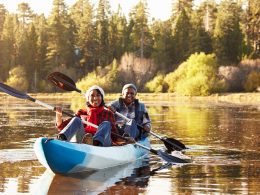There’s nothing quite like the allure of the great outdoors. The promise of fresh air, stunning vistas, and a break from the hustle and bustle of daily life is simply irresistible to outdoor enthusiasts, adventure seekers, and nature lovers alike.
But when it comes to camping, a question often arises—should you opt for wild camping or stick to designated campsites? Let’s look at the pros and cons of each to help you figure out which one is right for you.
Table of Contents
What are Wild Camping and Designated Campsites?
Before we jump into the comparisons, let’s define what wild camping and designated campsites are. There is nothing wrong with exploring both, in fact, most of the time my experiences are both right beside other campers and in remote areas.
Wild camping involves setting up your tent in remote, undeveloped areas without facilities. The common cliche around it is that it’s all about getting back to basics and immersing yourself fully in nature. A lot of people are intimidated by this type of camping because of the lack of civilization nearby.
Designated campsites, on the other hand, are maintained areas with amenities such as toilets, showers, fire pits, and sometimes even Wi-Fi. They offer a more structured and convenient camping experience. A lot of beginners will go this route (and stay there) before going off to the roads less traveled.
The Allure of Wild Camping
Wild camping offers a sense of freedom that designated campsites simply can’t match. The thought of pitching your tent under a blanket of stars, surrounded by nothing but the sounds of the forest is a dream come true for many.
This is simply because there is a unique sense of adventure and solitude that comes with wild camping that many find deeply satisfying. It’s an opportunity to disconnect from the digital world and reconnect with nature on a profound level.
However, wild camping isn’t without its challenges. Finding a suitable spot can be time-consuming, and you have to be entirely self-sufficient. There’s no running water, no toilets, and no immediate help in case of an emergency.
The gear requirements for wild camping are more demanding than those needed for designated campgrounds. You’ll need to pack extra gear for cooking, clothing needs, and food… all on your back. Keep this in mind if you don’t want to endure an (enjoyable) slog through the woods.
You will need to plan for multiple scenarios and you’ll have to do a lot of problem solving. But for those who thrive on overcoming obstacles and living off the land, wild camping is the ultimate test of survival skills.
Creature Comforts at Designated Campsites
For those who prefer a bit more comfort and convenience, designated campgrounds are the way to go. These sites are equipped with various amenities, such as power and running water, making your camping experience more enjoyable and less stressful. You don’t have to worry about digging a hole for a toilet or finding a safe place to store your food away from wildlife.
Another positive is that you can drive your vehicle right up to your campsite. This makes travel time minimal (depending on where you’re driving from) and the physical toll quite small. If you have family members with limited mobility, this is a good option.Designated campsites also offer a sense of community. You’ll likely meet other campers, share stories, and maybe even make lifelong friends. The downside? They can get crowded, especially during peak season. This can sometimes detract from the feeling of escaping into the wild, but for many, the trade-off is worth it for the added convenience and social aspect.
Environmental Impact A Tale of Two Campsites
When it comes to the ecological footprint, both options have their pros and cons. Wild camping, if done responsibly, can have minimal environmental impact. By following Leave No Trace principles, you can ensure that your presence doesn’t harm the environment. However, irresponsible wild camping can lead to severe ecological damage, including soil erosion, vegetation loss, and wildlife disturbance.
Designated campsites, while offering more control over waste and resource management, can also have significant environmental impacts. The infrastructure needed to maintain these sites can disrupt natural habitats. Plus, the sheer volume of campers can lead to pollution and overuse of resources.
On the flip side, well-managed campsites often have measures in place to minimize these impacts, such as waste disposal systems and conservation efforts.
Safety Considerations for Wild Camping
Safety while camping is one of the most important concerns on my list, especially when wild camping. Unlike designated campsites, where help is often just a short walk away, wild camping requires you to be more self-reliant.
A good rule of thumb is to always inform someone of your plans and carry a map and compass, as GPS signals can be unreliable in remote areas. Be aware of local wildlife and take precautions to store food securely. It wouldn’t hurt to watch a bunch of YouTube videos or take a course to learn some outdoor skills, just to be safe.
Another safety aspect to consider is the legal implications of wild camping. In some regions, wild camping is illegal or requires special permits. Make sure to research the regulations in your chosen area to avoid fines or other legal issues.
Tips for Choosing Between Wild Camping and Designated Campsites
Deciding between wild camping and a designated campsite ultimately comes down to your preferences and experience level. Here are some tips to help you choose:
- Assess Your Comfort Level Are you comfortable being entirely self-sufficient, or do you prefer having amenities close by?
- Consider Your Experience If you’re new to camping, starting with a designated campsite might be a safer and more enjoyable option.
- Check the Regulations Make sure to research the rules and regulations for camping in your chosen location.
- Evaluate the Environmental Impact Think about how your choice will affect the environment and how you can minimize your footprint.
- Plan for Safety Ensure you have the necessary gear and knowledge to stay safe in your chosen camping style.
Final Thoughts
Whether you choose wild camping or a designated campsite, both options offer unique experiences and benefits. Wild camping provides a sense of adventure and connection to nature that is hard to replicate, while designated campsites offer convenience and community. Whichever you choose, remember that the most important thing is to respect the environment and enjoy the beauty of the great outdoors

